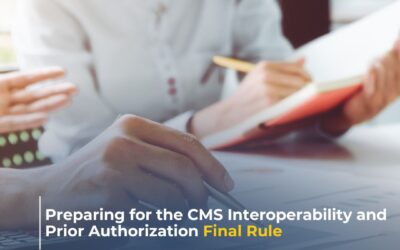Prior authorization (PA) is a process used by health insurance companies to determine whether certain medications, procedures, or treatments are medically necessary before approving coverage. While the goal is to control costs and prevent unnecessary treatments, PA can also introduce significant challenges for both patients and healthcare providers. PA requirements exist under both the pharmacy benefit (for prescription drugs) and the medical benefit (for procedures, devices, and certain physician-administered drugs), adding layers of complexity to healthcare access.
The Benefits of Prior Authorization
- Ensuring Medical Necessity – PA helps prevent the overuse of expensive medications and treatments that may not be necessary or effective for a patient’s condition. By requiring a review before approval, insurers can ensure that treatments align with evidence-based guidelines.
- Cost Control – By regulating the use of high-cost medications and procedures, PA helps keep healthcare expenses in check. This, in turn, can contribute to lower insurance premiums and reduced out-of-pocket costs for patients.
- Encouraging Appropriate Treatment Options – PA can guide providers toward cost-effective alternatives, such as generic medications or less invasive procedures, which may be just as effective as more expensive options.
The Drawbacks of Prior Authorization
- Delays in Treatment – One of the most significant drawbacks of PA is the potential delay it can cause in accessing necessary care. Depending on the health plan or PBM’s management procedures of PA requests, patients may have to wait days or even weeks for approval, which can be particularly concerning for those with urgent medical needs.
- Administrative Burden on Providers – Health plans and PBMs often spend hours navigating the PA process, manually filling out forms, and communicating with insurance companies. This administrative load takes time away from direct patient care and can contribute to burnout.
- Risk of Denials and Treatment Barriers – If a PA request is denied, patients may be forced to go through an appeals process, switch to a less effective treatment, or pay out-of-pocket. This can create significant stress and financial hardship, potentially leading to poor health outcomes.
How Agadia Can Help
Agadia, a leader in utilization management technology, offers innovative solutions that address these challenges by streamlining the PA process for health plans, PBMs, and other healthcare organizations. Their advanced platforms, such as PAHub, automate and optimize PA workflows, reduce administrative burdens and minimize delays in treatment approval.
- Faster Access to Medications – Agadia’s real-time decision support and automated workflows significantly reduce PA processing times, ensuring that patients receive the right medication as quickly as possible.
- Seamless Integration – Agadia’s solutions integrate directly in real time via APIs to pull in eligibility, claim history, mock adjudication, the effectuation and more into PAHub to reduce the administrative burden.
- Compliance and Cost Efficiency – By aligning with regulatory requirements and payer guidelines, Agadia helps payers secure approvals faster while maintaining cost control.
- Reducing Provider Burden – Automation and intelligent workflows lessen the administrative workload for healthcare providers, allowing them to focus on patient care instead of paperwork.
By leveraging Agadia’s technology, health plans and PBMs can enhance patient outcomes, improve provider efficiency, and eliminate many of the frustrations commonly associated with prior authorization.
Conclusion
While prior authorization plays a critical role in managing healthcare costs and ensuring appropriate treatment, it also presents challenges that can impact patient care. The key is to find a balance, streamlining the PA process while maintaining its intended benefits. With technology-driven solutions like PAHub, the industry can move toward a more efficient, patient-centered approach to prior authorization.










